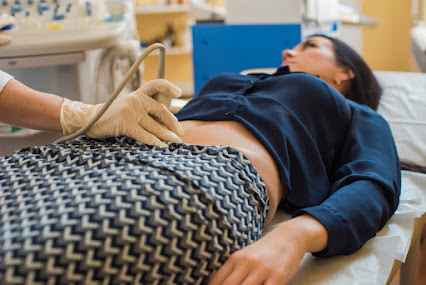Importance of Gynecological Screening
When patients do not have any signs of the condition but are at risk of acquiring it, doctors prescribe gynecological screening tests. Gynecologists recommend specialized screening tests for women who are at risk of acquiring certain gynecological problems. Doctors often prescribe testing if women experience symptoms linked with disorders of their reproductive systems in order to determine the source of such problems. These tests are referred to as diagnostic procedures. Let us attempt to figure out why gynecological screening tests are performed and what they mean.
A gynecologist must do a careful clinical evaluation on the patient. A pelvic examination, abdominal examination, and breast examination are all part of the gynecological examination. If necessary, the doctor may prescribe the following screening tests after reviewing the patient's complete medical history:
Important Women's Gynecological Screening Tests
The three tests listed below are critical screening tests for women at risk of cervical and breast cancer:
HPV (Human Papillomavirus) screening
Gynecologists take a tissue sample (usually vaginal discharge) and test it for HPV. A swab is used to collect the sample. HPV may cause genital warts and may raise one's chance of developing cervical cancer.
In women who are at risk of HPV infection, both HPV and PAP tests are performed.
PAP (Papanicolaou) test
The PAP test is used to look for abnormal development in the cervical cells (cytology testing) of the cervix, which is the lowest pole of the uterus. The test is very useful in detecting cervical cancer. This test may help identify precancerous cervical cells and cervical cancer. Precancerous cells known as cervical intraepithelial neoplasia (CIN) may be treated efficiently, limiting the growth and spread of cervical cancer.
PAP Is a simple test that aids in the early identification of cervical cancer.
If the HPV and PAP test results are normal in women aged 30 and above. For at least three years, these tests should not be repeated.
Breast Cancer Screening (Mammography) - A mammography may identify breast cancer in women.
Gynecological screening tests for detecting STDs
Women are more likely to get sexually transmitted illnesses including gonorrhoea and chlamydial infections. In a routine screening test, a swab is used to obtain a sample from within the vagina, which is then submitted to a laboratory for examination.
Endometrial Biopsy
A Gynecologist performs an endometrial biopsy to determine the source of irregular vaginal bleeding and to rule out endometrial cancer. A gynecologist inserts a small tube through the cervix into the uterus to obtain a tissue sample from the uterine wall during this procedure. The procedure takes around 15 to 20 minutes to complete.
Colposcopy
A gynecologist uses a particular equipment to look for evidence of illness in the vagina, vulva, and cervix. When the PAP test findings are abnormal, this test is advised. If the gynecologist discovers any abnormalities during the examination, she will obtain a tissue sample for biopsy using a colposcope. The treatment might take between 15 and 20 minutes to complete.
Screening for gynecological cancer
Colposcopy is recommended by a gynecologist to assist identify precancerous abnormalities in the vagina, vulva, and cervix.
Screening tests for cervical cancer have been proved to be very effective when compared to other cancers.Similarly, transvaginal ultrasound and CA125 are two tests that may help diagnose ovarian cancer.
Screening should, in general, begin at the age of 21 or three years following vaginal intercourse, with no higher age restriction. Screening should be done annually until a woman reaches the age of 30. Gynecological screening tests should be performed every two to three years after a negative result.
Screening is crucial because it allows gynaecologists to educate their patients on the significance of keeping healthy behaviours, limiting possible risks, and diagnosing potentially fatal illnesses such as cervical cancer, breast cancer, endometrial cancer, and sexually transmitted infections.
If you are looking for screening, Consult Dr. Anshumala Shukla Kulkarni one of the best Endometriosis doctor in India.
Also read: Top 10 reasons for Menstrual Irregularities in Women



.png)
Comments
Post a Comment